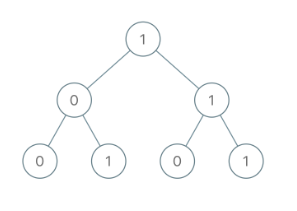原题说明
A valid parentheses string is either empty (""), "(" + A + ")", or A + B, where A and B are valid parentheses strings, and + represents string concatenation. For example, "", "()", "(())()", and "(()(()))" are all valid parentheses strings.
A valid parentheses string S is primitive if it is nonempty, and there does not exist a way to split it into S = A+B, with A and B nonempty valid parentheses strings.
Given a valid parentheses string S, consider its primitive decomposition: S = P_1 + P_2 + ... + P_k, where P_i are primitive valid parentheses strings.
Return S after removing the outermost parentheses of every primitive string in the primitive decomposition of S.
Example 1:
Input:
"(()())(())"
Output:"()()()"
Explanation:
The input string is"(()())(())", with primitive decomposition"(()())" + "(())".
After removing outer parentheses of each part, this is"()()" + "()" = "()()()".
Example 2:
Input:
"(()())(())(()(()))"
Output:"()()()()(())"
Explanation:
The input string is"(()())(())(()(()))", with primitive decomposition"(()())" + "(())" + "(()(()))".
After removing outer parentheses of each part, this is"()()" + "()" + "()(())" = "()()()()(())".
Example 3:
Input:
"()()"
Output:""
Explanation:
The input string is"()()", with primitive decomposition"()" + "()".
After removing outer parentheses of each part, this is"" + "" = "".
Note:
S.length <= 10000S[i]is"("or")"Sis a valid parentheses string
